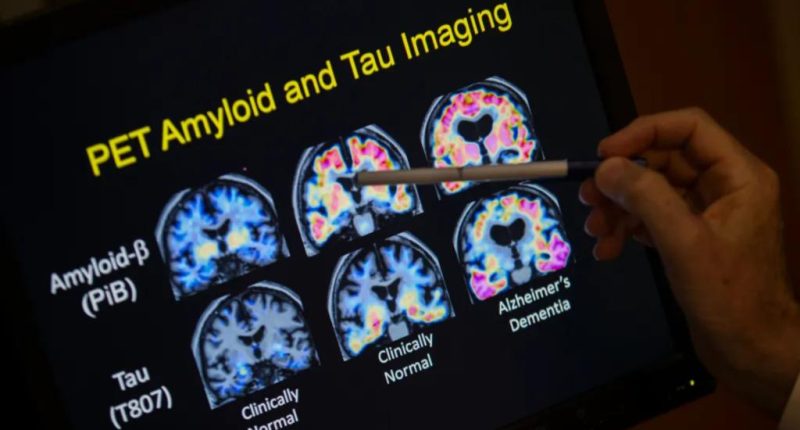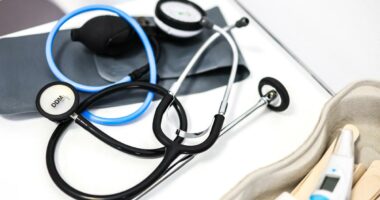Share this @internewscast.com
WASHINGTON — On Friday, U.S. health authorities approved the first blood test designed to aid in diagnosing Alzheimer’s, as well as identifying those who might benefit from medications that can slightly slow the progression of the memory-impairing condition.
This test assists doctors in distinguishing whether a patient’s memory issues stem from Alzheimer’s or other medical issues that could lead to cognitive challenges. The Food and Drug Administration has approved it for individuals aged 55 and over who exhibit early symptoms of the disease.
More than 6 million people in the United States and millions more around the world have Alzheimer’s, the most common form of dementia.
Developed by Fujirebio Diagnostics, Inc., the innovative test detects a sticky brain plaque called beta-amyloid, a crucial indicator of Alzheimer’s. Prior to this, the only FDA-approved techniques for amyloid detection involved invasive spinal fluid tests or costly PET scans.

The lower costs and convenience of a blood test could also help expand use of two new drugs, Leqembi and Kisunla, which have been shown to slightly slow the progression of Alzheimer’s by clearing amyloid from the brain. Doctors are required to test patients for the plaque before prescribing the drugs, which require regular IV infusions.
“Today’s clearance is an important step for Alzheimer’s disease diagnosis, making it easier and potentially more accessible for U.S. patients earlier in the disease,” said Dr. Michelle Tarver, of FDA’s center for devices.
A number of specialty hospitals and laboratories have already developed their own in-house tests for amyloid in recent years. But those tests aren’t reviewed by the FDA and generally aren’t covered by insurance. Doctors have also had little data to judge which tests are reliable and accurate, leading to an unregulated marketplace that some have called a “wild west.”
Several larger diagnostic and drug companies are also developing their own tests for FDA approval, including Roche, Eli Lilly and C2N Diagnostics.
The tests can only be ordered by a doctor and aren’t intended for people who don’t yet have any symptoms.
















